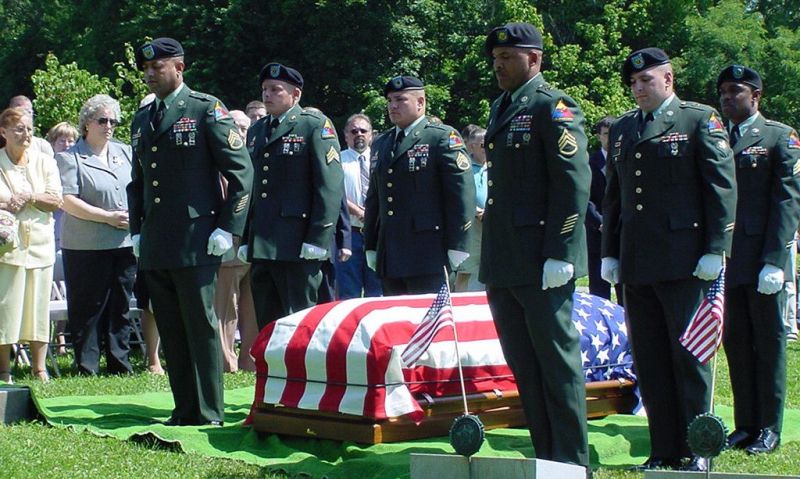
Seventy-one years after the armistice, remembrance is still important.
July 27, 2023, marks the 70th anniversary of the signing of the armistice ending Korean War hostilities. The era ran from June 25, 1950, to Jan. 31, 1955; Congress extended the period due to the uneasy peace negotiations after the armistice was signed in 1953. Unlike many other wars, the Korean War fostered many names. It is often called the “Forgotten War,” or a “police action.” Sandwiched between World War II and the Vietnam War, it is often overlooked.
The war began when North Korean forces stormed across the 38th parallel dividing North and South Korea. Their goal was to take total control of Korea. They nearly succeeded in pushing the United States and South Korean troops completely off the peninsula. Then-President Harry S. Truman responded to the invasion with a so-called police action by assembling a group of international allies to come to the aid of the South Koreans. North Korea had the support of the Soviet Union and China. By September 1950, North Koreans had nearly pushed UN troops off of the peninsula at the critical southeastern port of Pusan.
Gen. Douglas MacArthur, the commander of the Asian theater, never expected that the Russians or Chinese would enter the war. While the Russians provided military equipment and advisors, they did not engage full-scale in the war. However, in the fall of 1950, the Chinese sent nearly 250,000 troops across the Yalu River into North Korea. The UN advance at that time was pushed back to the 38th parallel. In April 1951, Truman relieved MacArthur of command for insubordination. In July 1951, truce talks began in Kaesong.
The Korean War was relatively short but very costly in terms of human lives. Nearly 5 million people perished. More than half of the casualties were civilians, about 10 percent of the population. This rate of casualties was higher than World War II and the Vietnam War.
Here are some historical facts about the war from the U.S. Department of Veterans Affairs: • 6.8 million American men and women served from June 27, 1950, to Jan. 31, 1955. • 54,200 Americans died in service during the hostilities that ended on July 27, 1953. Of these, 33,700 were battle deaths. • There were 7,140 POWs during the war. Of these, 4,418 were returned to the United States, 2,701 died and 21 refused repatriation. • There have been 131 recipients of the Congressional Medal of Honor among Korean War veterans.
• 58,000 Americans were killed during 15 years of war in Vietnam, or 3,866 per year. 54,000 Americans lost their lives in three years of war in Korea, or 18,000 per year.
Iwo Jima is generally thought to be the most ferocious battle ever engaged in by Americans – yet compare it to the battle of the Chosin Reservoir during the Korean War:
• Iwo lasted 36 days. Chosin was 15 days.
• Iwo had 6,135 Americans killed in action, or 175 per day. Chosin had 3,115 Americans killed in action, or 208 per day.
• Iwo had 17,841 wounded, or 510 per day. Chosin had 14,000 wounded, or 933 per day.
• Iwo had 60,000 Marines. Chosin had 20,000 fighters (17,000 Marines, 3,000 Army and 1,000 British Royal Marines).
• Iwo had 22 Medals of Honor awarded, or one for every 2,727 men. Chosin had 17 Medals of Honor awarded or one for every 1,176 men.
• At Iwo, Marines outnumbered the Japanese 3 to 1. At Chosin, the Chinese outnumbered the Americans 10 to 1.
• At Iwo, Marines killed 20,000 Japanese, or 571 per day. At Chosin, Americans killed 28,000 Chinese, or 1867 per day.
In addition, according to the Defense POW/MIA Accounting Agency, as of June 23, 2023, here are the latest statistics on missing personnel from Vietnam and the Korean War: • Vietnam missing in action (MIAs) – 1,579
• Korean War missing in action (MIAs) – 7,479
By no means do I bring these facts up to downgrade or denigrate the sacrifices during World War II and the Vietnam War; I had an uncle killed in World War II and a high school buddy killed in Vietnam. But my connection to the Korean War losses is a bit more personal. I have written about my uncle, Cpl. Charles A. Williams, several times in publications. He was killed at the Chosin Reservoir on Nov. 27, 1950, the first night of the battle. Approximately 20,000 Chinese troops overran approximately 3,000 U.S. Army and South Korean troops on the east side of the reservoir. My uncle’s remains were found in the fall of 2003 and returned for burial in Kentucky in July 2004. My then-80-year-old father was able to bury his brother at long last.
Should the Korean War still be called the “Forgotten War”? Ask the people of South Korea. They have never forgotten the sacrifices made by the thousands of UN forces who helped save their country and are still standing guard today. I saw an example of just how thankful they still are to the United States and its UN allies. I went on this year’s Texas South Plains Honor Flight to Washington, D.C., in early June. After some of our veterans placed a wreath at the Korean War Memorial, a group of sharply dressed South Korean generals approached our group, thanked our Korean War veterans and had their picture taken with them and shook their hands and bowed. After that, they took a group photo nearby next to the words “Freedom is not Free” etched in the wall of the memorial. These generals know what those words mean to their country, and they were honored to show us their appreciation. We should all honor our Korean War veterans as they do.
Larry A. Williams is a writer, Air Force veteran and member of George S. Berry Post 575 in Lubbock, Texas.
- Honor & Remembrance

